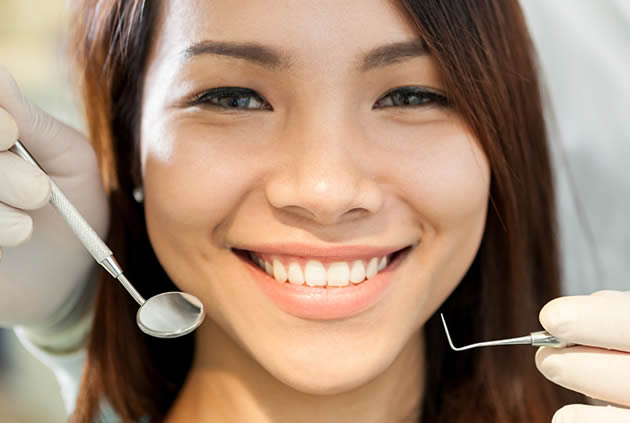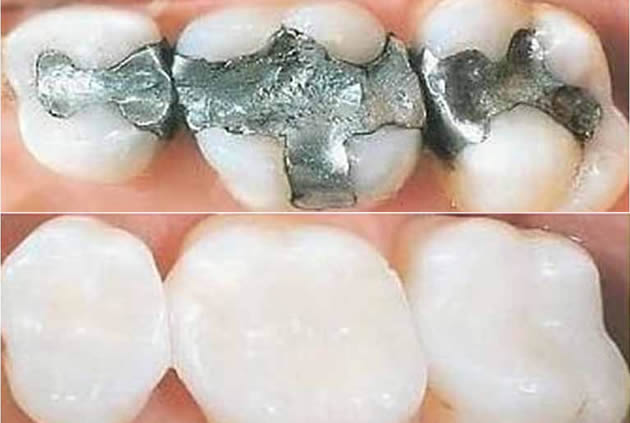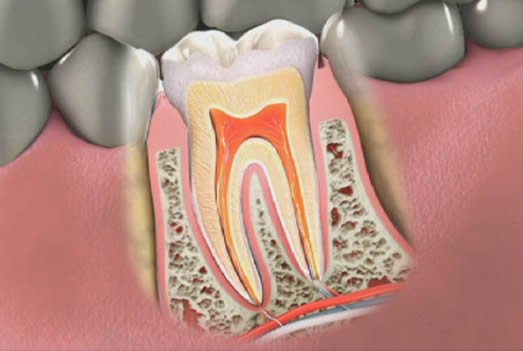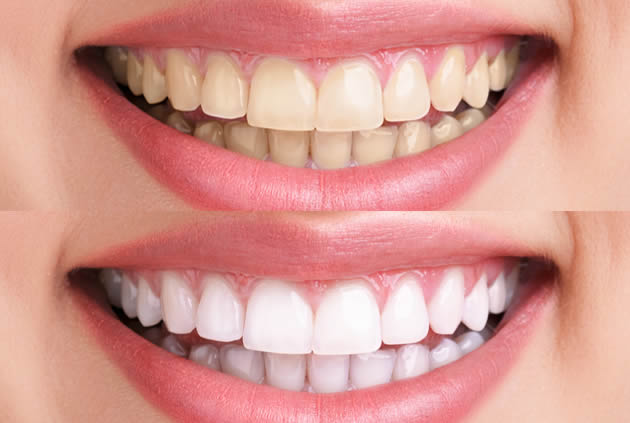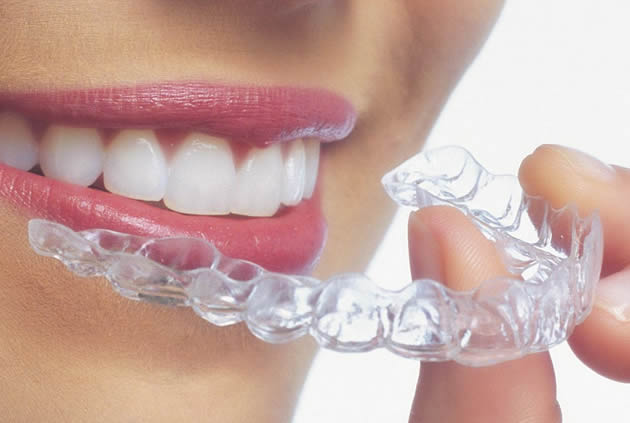
Importance of Dental Health During Pregnancy
Good oral hygiene plays a crucial role in maintaining overall health and well-being. During pregnancy, hormonal changes in the body can lead to an increased risk of several dental problems such as gum disease, tooth decay, and tooth erosion. In addition to these issues, poor dental health during pregnancy has been linked to adverse pregnancy outcomes such as premature birth and low birth weight.
Brief Overview of Common Dental Concerns During Pregnancy
There are several unique dental concerns that pregnant women may face:
- Gingivitis: hormonal changes in the body cause an increase in blood flow to gums making them more sensitive and prone to inflammation which leads to gingivitis
- Tooth decay: morning sickness causes acid reflux which leads to enamel erosion on teeth
- Pregnancy tumors: overgrowth or swellings occur more often on gum tissue due to hormonal changes
- Dry mouth: pregnant women may experience dry mouth due to hormonal fluctuations which can lead them vulnerable for cavities and gum disease
- Cavities: pregnant women may develop cavities if they consume more sugary foods or experience morning sickness
Although these dental concerns can be concerning, they can be prevented with proper oral hygiene and regular dental check-ups. Next, we will delve into the most common dental problems experienced by pregnant women: hormonal changes and gum disease.
Hormonal Changes and Gum Disease
Pregnancy is a unique phase of life when a woman’s body undergoes many hormonal changes. These changes can increase the likelihood of developing gum disease, also known as periodontal disease.
The hormone progesterone, which increases during pregnancy, causes an exaggerated response to plaque and bacteria in the mouth. This can lead to red, swollen and bleeding gums.
Symptoms and signs of gum disease in pregnant women
Early signs of gum disease include swollen gums that bleed easily when brushing or flossing. As the disease progresses, pockets form between the teeth and gums and may cause bad breath or a bad taste in the mouth. In advanced stages, teeth may become loose or fall out.
Prevention and treatment options for gum disease during pregnancy
Prevention is always better than cure, so it’s important to maintain good oral hygiene practices during pregnancy such as brushing twice daily with fluoride toothpaste and flossing regularly. Regular dental check-ups with a dentist are also crucial as they can identify any potential issues early on.
Treatment for gum disease during pregnancy may include deep cleaning procedures such as scaling and root planing (which removes plaque build-up below the gum line) or more extensive treatment if needed after delivery. If you suspect you have gum disease while pregnant, you should contact your dentist right away to schedule an appointment.
Morning Sickness and Tooth Erosion
Morning sickness is a common symptom experienced by many pregnant women. This condition is characterized by nausea and vomiting, particularly during the first trimester of pregnancy. Unfortunately, the acidic vomit produced during morning sickness can have a negative impact on dental health.
The acid present in vomit can cause tooth erosion, which is the wearing away of the enamel on teeth. Tooth erosion can cause sensitivity and pain while eating or drinking.
Tips for Preventing Tooth Erosion During Pregnancy
Preventing tooth erosion during pregnancy starts with good dental hygiene practices. Pregnant women should brush their teeth twice daily for at least two minutes with fluoride toothpaste. They should also floss daily to remove food particles that may be stuck between teeth and gums.
Additionally, pregnant women should rinse their mouth with water after vomiting to help neutralize any stomach acid left in the mouth. Pregnant women can also take steps to reduce morning sickness symptoms, which will ultimately help prevent tooth erosion.
Eating small meals throughout the day instead of large meals can reduce nausea and vomiting episodes. Drinking plenty of fluids, such as water or herbal tea, can also help reduce morning sickness symptoms.
Treatment Options for Tooth Erosion in Pregnant Women
If tooth erosion does occur during pregnancy, treatment options will depend on the severity of the condition. If caught early enough, enamel remineralization treatments may be used to restore some of the lost enamel on teeth.
In more severe cases, restorative dentistry procedures such as fillings or crowns may be necessary to repair damaged teeth. However, it’s important for pregnant women to consult with their dentist regarding any dental procedures they may need as some treatments are not recommended during pregnancy.
Pregnancy Tumors
Definition and Explanation of Pregnancy Tumors
Pregnancy tumors, also known as pyogenic granulomas, are non-cancerous growths that can develop on the gums during pregnancy. These growths are typically localized, meaning they only affect one area of the gums, and can range in size from a few millimeters to over a centimeter. They are usually painless, although some women may experience discomfort or bleeding when brushing their teeth.
Symptoms, Causes, and Risk Factors Associated with Pregnancy Tumors
The exact cause of pregnancy tumors is unknown. However, hormonal changes during pregnancy are believed to play a role in their development.
Specifically, an increase in estrogen and progesterone levels can cause an overgrowth of blood vessels in the gums. This overgrowth can then lead to the formation of pregnancy tumors.
While pregnancy tumors can develop in any woman who is pregnant, some women may be at a higher risk than others. For example, women who have poor dental hygiene or pre-existing gum disease may be more likely to develop these growths.
The symptoms of pregnancy tumors include red or purple bumps on the gums that bleed easily when touched or brushed. Some women may also experience pain or discomfort in the affected area.
Treatment Options for Pregnancy Tumors
In most cases, pregnancy tumors do not require treatment and will go away on their own after delivery. However, some women may choose to have them removed if they cause discomfort or embarrassment. If treatment is necessary, there are several options available.
One common treatment is surgical removal of the tumor under local anesthesia. Laser therapy may also be used to remove the growth while minimizing bleeding and discomfort.
Good oral hygiene practices such as regular brushing and flossing can help prevent the development of pregnancy tumors during pregnancy. Additionally, seeing a dentist for regular checkups and cleanings can help identify and treat any dental concerns before they become more serious issues.
Medications During Pregnancy
The Impact of Medications on Dental Health
Pregnant women are often prescribed medications to manage various health issues, but some medications can affect dental health. For example, certain antibiotics like tetracycline can cause tooth discoloration in developing fetuses.
Additionally, some over-the-counter pain relievers like aspirin and ibuprofen are not recommended during pregnancy because they can increase the risk of bleeding. Therefore, pregnant women should always inform their dentists and doctors about any medications they are taking to ensure that they receive the appropriate dental care.
Safe Medications for Pregnant Women
There are many safe options for pregnant women who need dental treatment. For example, topical fluoride treatments and local anesthesia are generally considered safe during pregnancy.
Antibiotics like penicillin and erythromycin are also generally safe for use during pregnancy. However, it is important to remember that every medication has risks associated with it, so dentists and doctors must weigh the benefits against any potential adverse effects.
Precautions when Taking Medication
While certain medications may be deemed safe during pregnancy, it is always important to take precautions when taking any medication. Pregnant women should always follow their doctors’ instructions carefully and only take medications as prescribed. They should also avoid self-medicating or taking medication without consulting a healthcare provider first.
Furthermore, pregnant women should inform their dentists or doctors if they experience any side effects from their medication or if they have any concerns about their treatment plan. Overall, while there may be some risks associated with taking medication during pregnancy as it affects dental health; seeking professional advice from healthcare providers can help minimize these risks and promote healthy outcomes for both mother and baby.
Nutrition During Pregnancy And Its Effect On Dental Health
Importance of nutrition in maintaining good oral health
A healthy diet is essential for maintaining good oral health during pregnancy. It is important to eat a well-balanced diet that includes a variety of fruits, vegetables, whole grains, lean proteins, and dairy products.
Calcium and vitamin D are particularly important for maintaining strong teeth and bones. Pregnant women should also drink plenty of water to stay hydrated.
Listing out foods that promote good oral health
Foods that promote good oral health include those that are rich in calcium and vitamin D, such as dairy products (milk, cheese, yogurt), leafy greens (kale, spinach), almonds, and salmon. Foods high in vitamin C (citrus fruits, strawberries) can also help strengthen gums and prevent gum disease. Crunchy fruits and vegetables like apples and carrots can help clean teeth naturally.
Foods That Should Be Avoided
During pregnancy it’s best to avoid sugary foods which contribute to tooth decay. Soft drinks should be avoided as they contain high levels of sugar which can harm the teeth already weakened by hormonal changes during pregnancy. Eating between meals or snacking all day leads to increased exposure to acid which is not good for the teeth either.
Eating a balanced diet during pregnancy is essential for overall health including dental hygiene.
Proper nutrition helps ensure the growth of a healthy baby while decreasing risks associated with premature birth or low birth weight. By consuming enough vitamins & minerals from quality food options pregnant women will maintain strong teeth while reducing their risk of gum disease or tooth decay even with hormonal fluctuations during pregnancy.
Do not wait any longer. Book your appointment now and achieve the smile you have always wanted. Dr. Farrugia is accepting new patients from Baltimore and the surrounding area.

The Social Impact of Invisalign
If you’re considering orthodontic treatment, chances are you’ve heard of Invisalign. This increasingly popular alternative to traditional braces uses a series of clear aligners to gradually shift your teeth into their proper positions. Not only is Invisalign effective, but it’s also less noticeable than metal braces, making it a popular choice for adults and teens alike.
However, one common concern for those considering Invisalign is whether it will affect their social life. After all, when you’re wearing something on your teeth 20-22 hours per day for months on end, it’s natural to wonder how it might impact your day-to-day interactions with others.
Fortunately, the answer isn’t black and white. While there are certainly some ways that Invisalign may have an impact on your social life, much of this depends on how you handle the treatment itself.
Invisalign: A Brief Overview
Before we dive into the social implications of using Invisalign, let’s first take a moment to review what exactly this treatment entails. As we mentioned earlier, Invisalign uses a series of clear plastic trays (also known as aligners) that fit over your teeth snugly in order to gradually shift them into their desired position. Each set of aligners is worn for about two weeks before being replaced by the next set in the series; over time, this process causes your teeth to move slowly but surely until they reach their final location.
One important thing to note about Invisalign is that while it can be highly effective in correcting many types of orthodontic issues (including crowding, spacing issues, and bite problems), it does require a significant commitment from the wearer. In order for Invisalign to work effectively – meaning that you see results as quickly and efficiently as possible – you’ll need to wear your aligners for 20 to 22 hours per day, every day.
This means that unless you’re eating or drinking (more on that later), your aligners should be in your mouth pretty much all the time. So, with that in mind, let’s take a closer look at how Invisalign might affect your social life.
The Pros of Invisalign
A Smile That Is Always Camera-Ready
One of the most significant advantages of Invisalign is its aesthetics. The clear aligners are virtually invisible, which means you can straighten your teeth without having to worry about the unsightly appearance and discomfort associated with traditional braces.
This feature can be especially appealing for individuals who are concerned about their social life. With clear aligners, you won’t have to cover your mouth or avoid smiling when taking pictures with friends.
Comfort and Convenience
Invisalign aligners are made from smooth, comfortable plastic that won’t irritate your cheeks or gums like metal wires and brackets do. They are also removable, which means you can take them out while eating or drinking anything other than water. This advantage eliminates the need to avoid certain foods or spend extra time cleaning around brackets and wires after meals.
Confidence Boosting
Having crooked teeth or an uneven bite can put a damper on your self-confidence and cause feelings of self-consciousness in social situations. By correcting these dental issues with Invisalign, individuals can enjoy a newfound confidence in their appearance, which can positively impact their social life in many ways.
The benefits of Invisalign go beyond just straightening teeth – they also provide aesthetic advantages that boost confidence levels, comfort during treatment, and convenience when it comes to daily life activities such as eating and drinking. These advantages make it easier for people undergoing orthodontic treatment to maintain a positive outlook in social situations while achieving the smile they desire.
The Cons of Invisalign
While there are many benefits of using Invisalign, there are also some cons to consider before starting treatment. Some common concerns about using Invisalign include speech impediments, discomfort, and maintenance.
Say What? Speech Impediments with Invisalign. One of the biggest concerns people have when considering Invisalign is whether it will affect their speech. It’s true that wearing aligners can cause a slight lisp or difficulty pronouncing certain sounds at first. However, most people adjust to the aligners within a few days to a week and any speech issues usually disappear quickly. If you continue to experience problems with your speech while wearing aligners, contact your dentist or orthodontist for advice.
Pain & Discomfort: The Unpleasant Side of Invisalign
Another downside of Invisalign is that it can be uncomfortable at times. You might experience soreness or sensitivity when you first start wearing your aligners or when you switch to a new set.
This discomfort typically subsides after a few days as your mouth gets used to the pressure from the aligners. Over-the-counter pain relievers like ibuprofen can help alleviate any discomfort you may experience during this time.
Maintenance Matters: Keeping Up with Your Aligners
Maintaining good oral hygiene is important with any orthodontic treatment, but it can be especially challenging with Invisalign because you have to remove your aligners every time you eat or drink anything other than water. You’ll also need to brush and floss frequently throughout the day since bacteria can get trapped between your teeth and the aligners if they aren’t cleaned properly.
Remembering to wear your aligners for 22 hours each day can also be a challenge for some people, especially if you have a busy social life and are constantly on the go. All of these issues can potentially impact your social life while undergoing Invisalign treatment.
However, it’s important to remember that these challenges are temporary and the benefits of achieving a straighter smile far outweigh the short-term inconveniences. With patience, perseverance, and a positive attitude, you can successfully navigate these cons and come out with a beautiful new smile.
Coping with Social Situations while Wearing Invisalign
The Challenge of Eating Out
One of the biggest challenges that people face when wearing Invisalign is eating out. Whether it is at a fancy restaurant or a casual diner, the temptation to remove the aligners and indulge in your favorite food can be overwhelming.
However, it is important to resist this temptation and keep your aligners in place for the recommended 22 hours a day. To make eating out with Invisalign easier, consider ordering soft foods that are easy to chew.
Soups, salads, and mashed potatoes are all great options. Alternatively, you can remove your aligners discreetly before eating and then clean them thoroughly before putting them back in.
Attending Special Events
If you have a special event coming up like a wedding or prom, you may be worried about how to handle Invisalign at the event. The good news is that there are ways to manage this.
Firstly, plan ahead and ensure that you have everything you need to take care of your aligners during the event. This includes things like dental wax for any rubbing or discomfort caused by the aligners.
Secondly, practice smiling with confidence so that others don’t notice your aligners as much. You could also consider using teeth whitening products before attending an event so that your smile looks its best.
Addressing Questions and Comments from Others
Another challenge with wearing Invisalign is dealing with questions or comments from others about the treatment. Some people may not even know what Invisalign is and assume you are wearing traditional braces.
To address these questions or comments confidently, it’s important to educate yourself on what Invisalign is and how it works. You could also try changing the topic by asking questions about their own dental experiences or interests.
Ultimately, wearing Invisalign will require some adjustments to your social life, but it doesn’t have to be a major disruption. By following these tips and being prepared, you can continue to live your life normally while undergoing orthodontic treatment.
The Emotional Impact of Invisalign
Undergoing orthodontic treatment can be emotionally challenging, even for adults. It’s not just about having a new appliance in your mouth, but it may also involve adjusting to a new appearance and dealing with the reactions of others. Self-consciousness and anxiety are common emotional responses to wearing Invisalign aligners.
Self-Consciousness: How to Cope
Feeling self-conscious is normal when you first start wearing Invisalign. After all, you have something foreign in your mouth, and it may affect your speech or appearance.
But there are ways to deal with self-consciousness:
- Remember why you opted for Invisalign: You wanted straighter teeth and a more beautiful smile.
- Talk to someone who has undergone orthodontic treatment before: They can reassure you that what you’re experiencing is normal.
- Reward yourself for milestones achieved during treatment: Celebrate every time you switch to a new set of aligners or when your teeth start looking straighter.
Anxiety: How to Cope
Anxiety is another common reaction to wearing Invisalign. You may worry about how long the treatment will take or whether it will be successful.
Here are some tips on managing anxiety:
- Take deep breaths when feeling overwhelmed: Deep breathing helps calm your mind and body.
- Focus on the present moment: Don’t worry about what might happen tomorrow or next month – focus on today’s aligners only.
- Avoid comparing yourself with others: Everyone’s journey with orthodontic treatment is different, so don’t compare yourself with others’ progress.
Maintaining a Positive Outlook: How to Cope
Maintaining a positive outlook is essential to cope with the emotional impact of Invisalign. A positive mindset can make the treatment more manageable and even enjoyable.
Here are some ways to stay positive:
- Think of Invisalign as an investment in yourself: You’re not just getting straight teeth; you’re investing in your health, confidence, and happiness.
- Keep a gratitude journal: Write down three things that you’re grateful for every day, no matter how small or insignificant they seem.
- Surround yourself with supportive people: Family and friends who encourage you and remind you of your progress can help you stay motivated.
The Final Verdict on Invisalign and Social Life
We’ve learned that using Invisalign can affect your social life in both positive and negative ways. The benefits of using Invisalign versus traditional braces far outweigh the inconvenience that comes with maintenance and wear. Not only do they look better, but they are also more comfortable to wear.
On the other hand, common drawbacks like speech impediments and discomfort may cause insecurity or social anxiety. However, with a little bit of preparation and self-assurance, these concerns can be combated with ease.
It’s essential to remember that having an orthodontic treatment is a choice that should not negatively impact your social life or make you feel uncomfortable being around others. Therefore, taking care of oneself mentally is as important as taking care of one’s teeth physically.
Whether or not you decide to get Invisalign should be based on your individual needs and preferences. Still, it’s comforting to know that if you do choose this treatment option, it will not have a long-term negative impact on your social life but could even improve it!
Take the first step towards a confident smile. Contact our Baltimore dental office to schedule your consultation!

The Journey to a Stylish New Smile: A Comprehensive Guide To Invisalign
Are you tired of hiding your smile because of crooked teeth or gaps? Do you dread the idea of wearing traditional metal braces for months on end?
If so, Invisalign may be the perfect solution for you. In this article, we’ll explore everything there is to know about Invisalign – from what it is and how it works, to the benefits of choosing this treatment method over traditional braces.
We’ll also delve into the process of getting fitted for and wearing Invisalign aligners, as well as answer frequently asked questions you may have. So if you’re ready to discover how you can achieve a stylish new smile with ease, keep reading!
Invisalign: The Clear Alternative To Traditional Braces
Traditional metal braces have been around for decades and are still a popular choice among orthodontic patients. However, they do come with their fair share of drawbacks.
For starters, they can be quite noticeable and may cause discomfort or irritation in the mouth. Additionally, they require frequent visits to the orthodontist for adjustments and can make maintaining proper oral hygiene more challenging.
In contrast, Invisalign aligners offer numerous benefits that make them an attractive alternative to traditional braces:
- Discreet Appearance: invisalign aligners are made from clear plastic and are virtually invisible when worn.
- Comfortable Fit: the smooth plastic material used in invisalign aligners doesn’t irritate or rub against your cheeks or gums like traditional brace wires can.
- No Food Restrictions: unlike with traditional braces where certain foods should be avoided due to getting stuck in brackets and wires, invisalign aligners are removable, allowing you to enjoy all your favorite foods without restrictions.
- Easy Maintenance: cleaning and maintaining invisalign aligners is a breeze- simply remove the trays and rinse them with water or use their cleaning kit for a deep clean.
- Shorter Treatment Time: Many patients find that Invisalign treatment takes less time than traditional braces. This is because it is easier to control tooth movements with clear aligners compared to metal brackets and wires!
Invisalign offers an array of benefits over traditional braces. If you’re looking for a more convenient, comfortable, and discreet way to straighten your teeth or fix gaps in your smile, then keep reading so we can show you how Invisalign works!
The Benefits of Choosing Invisalign
Comfort and Convenience
One of the biggest advantages of Invisalign over traditional braces is the level of comfort it provides. Unlike braces, which can cause irritation and soreness due to the brackets and wires rubbing against the inside of your mouth, Invisalign aligners are made from a smooth, comfortable plastic that won’t irritate your cheeks or gums.
You also won’t have to worry about getting food stuck in your braces or dealing with brackets popping off unexpectedly. With Invisalign, you can continue to eat all your favorite foods without having to modify your diet.
Aesthetics
Another benefit of choosing Invisalign is that the aligners are virtually invisible. While traditional braces can be highly noticeable and may make some people feel self-conscious, Invisalign aligners are clear and blend in with your teeth. This means you can undergo orthodontic treatment without anyone else knowing.
Improved Oral Health
In addition to providing aesthetic benefits, choosing Invisalign over traditional braces can also lead to improved oral health. With traditional braces, it’s easy for food particles to get stuck in between brackets and wires, leading to plaque buildup and an increased risk of tooth decay.
However, because Invisalign aligners are removable, you’ll be able to brush and floss as normal – without any additional tools needed – ensuring that your teeth stay healthy throughout treatment. Overall, if you’re looking for a way to improve both the appearance and health of your smile while maintaining comfort and convenience during treatment, then choosing Invisalign may be a great option for you!
The Process of Getting an Invisalign Treatment
Initial Consultation: The first step towards getting a stylish new smile with Invisalign is to schedule an initial consultation with an orthodontist who is certified to provide Invisalign treatment. During this appointment, the orthodontist will examine your teeth and determine if Invisalign is the right treatment option for you.
They will also take x-rays and impressions of your teeth which will be used to create a 3D digital model of your mouth. Fitting for Aligners: Once your orthodontist has determined that you are a good candidate for Invisalign, they will begin the process of fitting you for aligners.
This entails creating a custom-made set of aligners that have been molded specifically to fit snugly over your teeth. Typically, patients receive several sets of aligners at once, each designed to be worn for about two weeks before being replaced by the next set in the series.
Wearing Invisalign Aligners: Wearing Invisalign aligners is easy and convenient. Simply pop them in your mouth like any other dental appliance and go about your day as usual!
Patients typically wear their aligners for 20-22 hours per day, removing them only when eating or drinking anything other than water.
Maintaining Oral Hygiene: One important aspect of maintaining proper oral hygiene while undergoing treatment with Invisalign is to follow a regular tooth-brushing routine.
It’s also recommended that patients use an antibacterial mouthwash and floss regularly to remove any food particles or bacteria that may get trapped in between their teeth and the aligner trays. By following these simple tips, patients can ensure that their teeth stay healthy and clean throughout their entire treatment period!
Frequently Asked Questions About Invisalign
Is Invisalign painful?
One of the biggest advantages of Invisalign is that it is relatively pain-free compared to traditional braces. While you may experience some mild discomfort or pressure when you first begin wearing a new aligner, this should subside within a few days. Additionally, since there are no brackets or wires to adjust as with braces, you will likely experience less soreness overall.
How long does treatment typically last?
The length of Invisalign treatment can vary depending on the complexity of your case and your individual goals. On average, most patients wear their aligners for about 12-18 months. During this time, they will switch to new aligners every 1-2 weeks as directed by their orthodontist.
Can I eat and drink normally with Invisalign?
Yes! Unlike traditional braces, which require dietary restrictions due to the risk of damaging wires and brackets, with Invisalign you can eat and drink whatever you like. However, it is important to remove your aligners before eating or drinking anything other than water in order to avoid staining them or damaging them.
What happens if I lose an aligner?
If you lose an aligner or if it becomes damaged beyond repair, contact your orthodontist right away. They may recommend that you temporarily switch back to a previous set of aligners while new ones are ordered. It is important not to skip ahead in your treatment plan or skip wearing your aligners altogether as this can delay progress and lead to less favorable results.
What if I have dental restorations like bridges or implants?
Invisalign can still be a viable option for many patients with dental restorations such as bridges or implants. Your orthodontist can evaluate your unique situation and determine whether Invisalign is a good fit for you. In some cases, attachments may be placed on certain teeth to help the aligners grip properly and achieve the desired movement.
Investing in Your Smile Pays Off
Getting Invisalign treatment can be a significant investment, but the benefits of having a beautiful, healthy smile will last a lifetime. Studies show that people with straight teeth are more likely to be confident, successful, and happy in their personal and professional lives. By choosing Invisalign over traditional braces, you can achieve these same benefits without sacrificing your appearance or comfort.
The Future Is Bright with Invisalign
Invisalign technology is constantly evolving to make treatment faster, more effective, and more comfortable for patients. As the popularity of this orthodontic treatment continues to grow worldwide, it’s clear that Invisalign is here to stay. If you’re considering getting Invisalign treatment but are unsure whether it’s right for you, don’t hesitate to schedule a consultation with an orthodontist who specializes in this innovative treatment option.
Your New Smile Awaits
All things considered; Invisalign is an excellent choice for those who want a stylish new smile without the wires and brackets associated with traditional braces. The process is relatively simple and straightforward while providing excellent results. By following the tips outlined in this article and seeking guidance from an experienced orthodontist throughout your treatment journey, you’ll soon discover why so many people are raving about getting stunning smiles through Invisalign!
Do not wait any longer. Book your appointment now and achieve the smile you have always wanted. Dr. Farrugia is accepting new patients from Baltimore and the surrounding area.

Invisalign is quickly becoming the go-to solution for those seeking orthodontic treatment.
It’s no surprise that Invisalign has gained such widespread popularity in recent years.
Unlike traditional braces, Invisalign aligners are clear, comfortable, convenient and deliver impressive results. The benefits of using Invisalign far outweigh any drawbacks- it’s no wonder why so many people are opting for this modern approach to teeth straightening.
Invisalign and its Popularity
Invisalign has become a household name since its introduction in 1997. The procedure involves a series of clear plastic aligners that gradually shift your teeth into their desired position through gentle pressure. Each set of aligners is custom-made to fit your specific dental profile and each set is worn for approximately two weeks before being replaced by the next one in the series.
Why it’s Popular
So why exactly is Invisalign so popular? For starters, it provides a level of convenience that traditional braces simply can’t match.
Additionally, Invisalign offers an aesthetically pleasing alternative to metal wires and brackets that can detract from your smile during treatment. Furthermore, Invisalign is more comfortable than traditional braces and delivers comparable results with less time investment.
And last but not least, financially speaking it’s often more cost-effective than traditional braces depending on the severity of your case. If you’re considering orthodontic treatment with Invisalign or if you’re just curious about what all the fuss is about, keep reading to learn more about what makes this clear aligner system so great!
Convenience is Key
The hassle-free process of getting Invisalign
First things first, getting Invisalign is a piece of cake. Unlike traditional braces, there are no metal brackets to be installed, no wires to be tightened, and no need for frequent visits to the orthodontist. All you need to do is have a consultation with your dentist or orthodontist, take impressions of your teeth, and wait for your custom-made aligners to arrive.
The flexibility to remove them when needed
Another great thing about Invisalign? You can remove them whenever you want!
Need to eat a sticky caramel apple? No problem.
Just pop out your aligners and enjoy that sweet treat without worrying about damaging them. Going on a hot date and don’t want metal braces in your mouth?
Easy peasy – just remove the aligners for the evening. With Invisalign, you have the freedom to take them out whenever necessary.
No restrictions on food or drink intake
Say goodbye to saying goodbye to certain foods with Invisalign! Traditional braces come with a long list of foods that are off-limits (think sticky candy and crunchy chips), but with Invisalign, there are no dietary restrictions.
Simply take out the aligners before eating or drinking and put them back in afterward – it’s that simple. Plus, because the aligners are removable, it’s easy to brush and floss properly after meals – something that can be difficult with traditional braces.
Overall, convenience is one of the main reasons why Invisalign has become so popular among dental patients today. From hassle-free appointments and installation processes, flexible usage options including removing aligners when needed without worrying about food/drinks intake restrictions makes this invisible product unbeatable!
Aesthetically Pleasing
The clear aligners are virtually invisible
One of the most significant advantages of Invisalign is that it’s virtually invisible. The clear aligners fit snugly over teeth and are made to blend with the natural color of your teeth.
Unlike metal braces, there is no need to worry about awkward smiles or self-consciousness when posing for photos or speaking in public. Invisalign allows you to go about your day-to-day activities without drawing unwanted attention to your mouth, providing a more natural look that many patients feel great about.
No metal brackets or wires to detract from your smile
Another benefit of Invisalign is that there are no metal brackets or wires to detract from your smile. With traditional braces, metal brackets can be seen on each tooth, and this can make some patients feel self-conscious. The wires connecting the brackets can also be uncomfortable and poke the cheeks and gums in a way that causes discomfort.
Boosts confidence in social situations
Invisalign adds an extra layer of confidence for those who fear being judged for their looks because it eliminates these issues. People are more likely to speak up, laugh out loud, and enjoy social interactions when they know their smile looks fantastic.
This boost in self-confidence leads to better mental health outcomes by reducing anxiety related to social situations while boosting overall self-worth. Overall, the aesthetic benefits of Invisalign cannot be overstated – it’s a game-changer for many people who desire a straighter smile without sacrificing appearance or spending years hiding behind braces.
Comfortable
When I first got my Invisalign, I was amazed at how comfortable they were in comparison to traditional braces. No more sharp wires poking my cheeks or the dreaded tightening of metal brackets. The aligners are made from a smooth, clear plastic that molds perfectly to your teeth for a snug, comfortable fit.
No sharp edges or wires to irritate the mouth
One of the biggest complaints about traditional braces is the discomfort they cause – from cuts and sores caused by wires digging into soft tissue, to pressure on teeth that can cause headaches and jaw pain. With Invisalign, there are no sharp edges or wires to irritate your mouth. This means you can go about your day without worrying about pain or discomfort.
Smooth, custom-made aligners fit snugly over teeth
The beauty of Invisalign lies in its custom-made aligners that fit seamlessly over your teeth. Not only does this provide comfort, but it also ensures optimal results as each tooth is shifted gently into place with precision and accuracy.
Gradual, gentle shifts in teeth alignment
The gradual process of shifting teeth with Invisalign is another reason why it’s such a comfortable and pain-free option compared to traditional braces. Each set of aligners applies just enough pressure to shift your teeth slightly without causing any significant discomfort – which is perfect for those who have sensitive mouths.
If you’re looking for an orthodontic solution that’s both effective and comfortable, look no further than Invisalign. With its smooth plastic aligners that cause little-to-no discomfort, you’ll be able to straighten your smile without any hassle or pain.
Effective Results
Are you tired of feeling self-conscious about your smile? Invisalign may be the answer you’ve been searching for. Not only does it boost self-confidence, but it also effectively treats a wide range of dental issues.
Invisalign can treat a wide range of dental issues
Gone are the days where traditional braces were the only option for correcting dental problems. Invisalign technology has advanced to allow for treatment of overbite, underbite, crowding, spacing, and more. Its customized aligners gradually shift teeth into their desired position and improve overall oral health.
Comparable effectiveness to traditional braces
There’s a common misconception that traditional braces are more effective at treating dental issues than Invisalign. However, research has shown that Invisalign is just as effective as traditional braces in treating mild to moderate cases of common orthodontic problems. In fact, some patients even report better results with Invisalign due to its ability to target specific areas in the mouth.
Shorter treatment time compared to traditional braces
One major advantage that Invisalign has over traditional braces is its shorter treatment time. On average, patients wear their aligners for 12-18 months compared to an average treatment time of 18-36 months with traditional braces. This means less time spent at the orthodontist’s office and more time enjoying your new smile.
If you’re considering orthodontic treatment and want effective results without sacrificing comfort or convenience, then look no further than Invisalign. With its ability to treat various dental issues and shorten treatment time compared to traditional braces while maintaining comparable effectiveness – it’s no surprise why it’s so popular among people who care about their teeth!
Cost-effective Solution
A long-term investment that pays off in a beautiful smile.
Invisalign aligners are indeed a long-term investment worth considering if you’re looking for an aesthetically pleasing way to straighten your teeth. Compared with traditional braces, Invisalign treatment takes less time and requires fewer visits to your dentist/orthodontist’s office. In terms of cost-effectiveness, Invisalign is an excellent investment because it can provide results equal in quality and effectiveness as traditional braces while being less visible and more comfortable than them.
Considering how confident one can become after completing their Invisalign treatment, it’s worth every penny in terms of improving one’s self-image. It’s vital not only for cosmetic appeal but also oral health reasons as well since straighter teeth are easier to clean/maintain than crowded or crooked ones – which lowers a person’s risk for cavities and gum disease in the future.
Invisalign is popular because it offers far more benefits compared with conventional metal braces. Its convenience, aesthetics, effectiveness, comfort, and cost-effectiveness set it apart as a long-term investment that pays off in a beautiful smile.
It’s no surprise why Invisalign has become such a popular choice for people seeking orthodontic treatment
. With its many benefits – convenience, aesthetics, comfort, effectiveness – it’s easy to see why more and more people are choosing this option over traditional braces.
So if you’re considering orthodontic treatment but aren’t sure where to start, give Invisalign a chance! It may just be the best decision you ever make for your dental health and confidence.
Do not let another day go by without taking care of your dental needs. Request an appointment now at our Baltimore dental office!

Why You Shouldn’t Let Fear Keep You Away from the Dentist
Dental fear is a common and understandable feeling that many people experience. It often stems from past negative experiences at the dentist, fear of pain, or even just the unknown. Whatever the reason may be, dental anxiety can prevent people from regularly visiting the dentist for important check-ups and cleanings.
According to research conducted by the American Dental Association, up to 20% of Americans avoid going to the dentist due to fear or anxiety. This is concerning because regular dental check-ups and cleanings play a crucial role in maintaining good oral health.
Understanding Dental Fear
The Root Causes of Fear
Dental fear or anxiety is a common issue that affects millions of people worldwide. This fear can stem from various reasons, starting with past experiences at the dentist. If you had a bad encounter with a dentist, whether it was due to pain, discomfort, or simply an unpleasant experience, it can develop into an actual phobia.
Additionally, if you’ve heard horror stories about dental procedures from others or seen negative portrayals on TV shows and movies, this could also contribute to your dental fears. Another reason for dental anxiety is the fear of pain.
Even though modern dentistry has come a long way in terms of reducing pain levels during procedures, the thought of feeling any type of discomfort or pain can trigger some individuals. Furthermore, individuals who have mental health issues like depression and anxiety are more likely to experience dental anxiety.
Dental Anxiety’s Effect on Oral Health
When dental anxiety becomes extreme and prevents someone from going to the dentist altogether, it can lead to severe oral health issues. A person who avoids going to the dentist may have untreated cavities that worsen over time and increase their risk for tooth decay and inevitable tooth loss.
Moreover, untreated gum disease is another big concern resulting from avoiding regular check-ups and cleanings. Gum disease occurs as a result of plaque buildup in between teeth that hardens into tartar if left untouched for too long; eventually leading to gum inflammation and bleeding when brushing your teeth.
If left controllable without treatment by a professional dentist upon diagnosis stage 1 gingivitis leads towards stage 4 periodontitis which results in bone loss around teeth and eventual tooth loss. It’s crucial not only for oral health but also general well-being that individuals overcome their fear of going to the dentist by finding ways to manage their anxieties before visiting a dentist; thereby, preventing these issues from happening in the first place.
Overcoming Dental Fear
Tips for Managing Anxiety Before and During a Dental Visit
If you are one of the many people who experience dental fear, there are several techniques you can try to manage your anxiety before and during a dental visit. Deep breathing is a great way to calm your mind and relax your body. Take slow, deep breaths in through your nose and out through your mouth.
Visualization techniques, such as imagining yourself in a peaceful setting like the beach or the mountains, can also help distract you from any anxieties you may be feeling. Another helpful tip is to communicate with your dentist about your fears.
Letting them know how you feel can lead to more personalized care that accommodates your needs. They can explain each step of the procedure beforehand, address any concerns you may have, and offer reassurance throughout the visit.
Sedation Dentistry Options for Those with Severe Anxiety
For those with severe dental anxiety that cannot be managed with relaxation techniques alone, sedation dentistry may be an option to consider. This involves administering medication to help patients relax during procedures. There are several types of sedation available depending on the level of anxiety and type of procedure being performed.
Nitrous oxide, commonly known as laughing gas, is often used for mild cases of anxiety. The gas is administered through a mask placed over the nose and helps patients feel calm and relaxed.
Oral sedation involves taking medication prior to the appointment to induce drowsiness and relaxation. This option is typically reserved for moderate cases of anxiety.
Intravenous (IV) sedation is used for more severe cases of anxiety or longer procedures where deeper levels of sedation are needed. Medications are administered directly into the bloodstream through an IV line.
It’s important to discuss all options with your dentist before choosing which type of sedation would best suit your needs. With the right approach and communication, dental anxiety can be managed, allowing for a more comfortable and stress-free dental experience.
The Benefits of Regular Dental Visits
Prevention and early detection of oral health issues
Regular dental check-ups are essential for maintaining optimal oral health. During these visits, your dentist will check for any signs of tooth decay, gum disease, or other oral health issues. Early detection is key to preventing these problems from becoming more serious and potentially causing more significant damage to your teeth and gums.
Your dentist may also take X-rays during your visit to check for any underlying issues that may not be visible during a visual examination. By catching such problems early on, you can avoid the need for more extensive and expensive treatments down the road.
Importance of maintaining good oral hygiene habits
Regular dental visits also help you maintain good oral hygiene habits. Your dentist will provide guidance on proper brushing and flossing techniques, as well as offer advice on how to improve your diet to ensure healthy teeth and gums. Additionally, during a dental cleaning appointment, your hygienist will remove any buildup of plaque or tartar that cannot be removed with regular brushing or flossing alone.
This process helps prevent cavities, gum disease, and bad breath. By following the recommendations provided by your dentist during regular check-ups, you can ensure that you are doing everything possible to maintain good oral health throughout your life.
Finding the Right Dentist for You
Factors to Consider When Choosing a Dentist
Choosing a dentist can be overwhelming, especially when you have dental anxiety. However, there are some factors that can help narrow down your options. Location is the first factor to consider.
You want to choose a dentist that is conveniently located near your home or office so you don’t have to spend too much time or effort traveling there. Experience is also important when choosing a dentist.
Look for someone with many years of experience and who has treated patients with similar fears before. Reading patient reviews can be helpful in determining if the dentist has a good reputation.
Importance of Finding a Dentist Who Understands and Can Accommodate Your Fears
It is crucial to find a dentist who understands your fears and knows how to work with them. Fearful patients require extra attention and care during dental visits, so it’s important that your dentist knows how to handle your anxiety. Dentists who specialize in treating fearful patients may offer sedation dentistry options such as nitrous oxide or oral sedation.
They may also take extra time during appointments to explain procedures thoroughly, answer questions, and establish trust. In addition, finding a supportive dental team can make all the difference in overcoming dental fear.
From the front desk staff to the hygienists and assistants, everyone should be kind and compassionate towards fearful patients. By taking these factors into consideration when choosing a dentist, you can feel more confident about getting the dental care you need while overcoming your fear of dentistry.
Dental Fear Shouldn’t Keep You From Good Oral Health
Dental fear is a common problem that affects many people. However, it’s important to remember that avoiding the dentist can have serious consequences for your oral health.
Regular check-ups are essential for maintaining healthy teeth and gums, and overcoming dental fear should be a priority. With the tips outlined in this article and the help of a compassionate dentist, you can manage your anxiety and get the care you need.
A Positive Outlook on Dental Health
Don’t let fear stand in the way of optimal oral health! By seeking out a dentist who understands your concerns and using coping strategies like deep breathing or sedation dentistry, you can take control of your dental anxiety and enjoy the benefits of regular check-ups.
Remember that good oral hygiene habits also play an important role in preventing problems down the line. With dedication to your dental health, there’s no reason why you can’t have a bright, healthy smile throughout life!
Do not let another day go by without taking care of your dental needs. Request an appointment now at our Baltimore dental office!

Why You Should Never Skip Regular Dental Appointments
Welcome to the world of general dentistry – a branch of medicine that deals with the prevention, diagnosis, and treatment of oral health issues. General dentists are your primary care dental providers who offer a range of services such as routine check-ups, teeth cleaning, cavity filling, gum disease treatment, root canals, and more. Dental problems not only affect your oral health but also impact your overall well-being.
Poor oral health can lead to several chronic diseases such as heart diseases, stroke, diabetes, and respiratory infections. Therefore it is crucial to maintain good oral hygiene practices and visit a general dentist regularly.
The Significance of Regular Dental Appointments
Regular dental appointments are essential for maintaining optimal oral health. It is recommended to visit your dentist once every six months for routine check-ups and cleanings.
During these appointments, your dentist can detect any potential issues early on before they become major problems that require extensive treatment. Dentists also perform regular teeth cleanings that help remove plaque buildup and tartar from hard-to-reach areas in your mouth.
This helps prevent the formation of cavities and gum disease which can lead to tooth decay and tooth loss. Overall regular dental visits are an integral part of maintaining good oral health habits for life.
Benefits of Regular Dental Appointments
Preventative care for oral health issues
One of the main benefits of regular dental appointments is prevention. By scheduling regular check-ups, your dentist can identify and treat any oral health issues before they become major problems.
During your appointment, you will receive a thorough examination, including a cleaning and polishing to remove plaque and other buildup that can lead to tooth decay or gum disease. By taking preventative measures, you can avoid painful and costly treatments in the future.
Early detection and treatment of dental problems
Another key benefit of regular dental appointments is early detection. Your dentist is trained to identify dental problems before they become serious issues.
For example, if you have a small cavity that goes untreated, it can lead to further decay and eventually require a root canal or even extraction. However, if caught early enough, a simple filling may be all that is needed to prevent further damage.
Improved overall health and well-being
Regular dental appointments not only benefit your oral health but also improve your overall health and well-being. Studies have shown that there is a link between poor oral health and other medical conditions such as heart disease, diabetes, and stroke. By taking care of your teeth and gums through regular check-ups with your dentist, you are also taking care of your body as a whole.
Additionally, maintaining good oral hygiene has been linked to improved mental health as well as higher self-esteem levels. So don’t neglect those regular appointments – they’ll keep you healthy both inside and out!
Common Procedures During Dental Appointments
When you go to the dentist for a regular checkup, there are a few common procedures that you can expect to undergo. These procedures are designed to help your dentist keep your teeth healthy and identify any issues that may have developed since your last visit. Here are some of the most common procedures that you’ll experience during your appointment:
Teeth Cleaning and Polishing
The first thing that usually happens during a dental appointment is teeth cleaning and polishing. This procedure involves getting rid of any plaque or tartar buildup on your teeth that could cause tooth decay or gum disease if left untreated. Your dentist will use special tools to scrape away any buildup, followed by polishing your teeth with a gritty substance to remove surface stains.
X-Rays for Detecting Cavities or Other Issues
Your dentist may also take X-rays of your mouth during your checkup. X-rays allow dentists to see what’s going on beneath the surface of your teeth and gums, which can help them detect cavities, infections, and other issues before they become major problems. The process is quick and painless; you’ll just need to bite down on a special piece of film while the X-ray machine takes a picture of your mouth.
Oral Cancer Screenings
Many dentists will also perform an oral cancer screening as part of their routine checkups. This involves examining all areas of the mouth (including the gums, tongue, cheeks, and roof) for signs of cancerous growths or abnormalities.
Early detection is key when it comes to treating oral cancer effectively, so it’s important not to skip this part of the exam. All in all, these common procedures may seem routine but they are very important in maintaining good oral health.
They can help your dentist catch any problems early, before they have a chance to cause significant damage to your teeth and gums. So the next time you’re due for a checkup, be sure to go in with confidence, knowing that you’re taking an important step towards keeping your smile healthy and shining.
Consequences of Skipping Regular Dental Appointments
Increased risk of tooth decay, gum disease, and other oral health issues
Skipping regular dental appointments can lead to a buildup of plaque on your teeth, which can eventually cause tooth decay and gum disease. Plaque is a sticky film that forms on teeth and contains harmful bacteria that feeds on sugars in the food we eat. Over time, this bacteria can cause cavities or even lead to periodontal disease, which can result in tooth loss.
Higher costs for treatment in the long run
By skipping regular dental appointments, you may be putting yourself at risk for more serious oral health problems down the road. These problems often require more extensive treatment and therefore come with a higher price tag.
For example, a simple cavity that could have been detected early on during a routine dental exam may turn into something much more complicated if left untreated. This could mean needing a root canal or even an extraction – procedures that are much more expensive than simply filling a cavity.
Potential impact on overall health
It’s not just your oral health that suffers when you skip regular dental appointments – it could also have an impact on your overall health. Studies have shown that there is a link between poor oral health and certain systemic diseases such as heart disease, stroke, and diabetes. In fact, people with gum disease are twice as likely to develop heart disease as those who don’t have it.
Additionally, pregnant women with gum disease are at an increased risk for premature birth or having low birth weight babies. Skipping regular dental appointments is not worth the risk.
By neglecting your oral health you could be setting yourself up for serious problems down the road – both financially and physically. Don’t wait until it’s too late – make sure to schedule those routine check-ups with your dentist!
Addressing Common Concerns About Dental Appointments
Fear or Anxiety about Visiting the Dentist:
It’s common for people to feel anxious about visiting the dentist. However, avoiding dental appointments out of fear can have serious consequences for your oral health. Fortunately, there are several options available to help you feel more relaxed during your appointment.
One option is nitrous oxide, also known as laughing gas. This is a safe and effective way to calm anxiety and make you feel more comfortable during your dental procedure.
Discuss Options for Sedation or Relaxation Techniques:
If you experience severe anxiety or fear about visiting the dentist, there are other sedation techniques available that can help you relax during your procedure. Oral sedatives can be prescribed by your dentist and taken before your appointment to help ease any anxiety you may have. Another option is IV sedation, which involves administering medication directly into a vein to induce a state of deep relaxation.
Emphasize the Importance of Open Communication with Your Dentist:
One of the most important things you can do when visiting the dentist is communicate openly with them about any fears or concerns you may have. This will allow them to work with you to create a plan that addresses your specific needs and helps alleviate any anxiety or discomfort during your appointment.
They may also be able to provide tips on how to improve your oral health routine at home, which can further reduce the need for invasive dental procedures in the future. Overall, it’s important not to let fear or anxiety prevent you from getting regular dental care.
Visiting the dentist regularly can not only prevent serious oral health issues but also contribute significantly to overall health and well-being. By discussing concerns with your dentist and exploring options for relaxation techniques like nitrous oxide or sedatives, anyone struggling with dental anxiety can get back on track to a healthy smile.
Don’t Skip Your Next Dental Appointment
Regular dental appointments are crucial for maintaining good oral and overall health. They help prevent small problems from becoming big ones and can even help detect non-dental related issues that can have serious consequences on one’s overall health. By staying on top of your dental health, you can save money in the long run and enjoy a brighter, healthier smile.
You’re Not Alone
If you’re someone who experiences anxiety or fear about visiting the dentist, know that you’re not alone. Many people feel this way, but there are options available to help make dental appointments more comfortable. Talk to your dentist about your concerns and work together to find a solution that works for you.
A Bright Future for Your Oral Health
By prioritizing regular dental appointments, you’re investing in a healthy future for yourself. You’ll be able to enjoy all the benefits of strong teeth and healthy gums without worrying about painful or costly treatments down the line.
So why wait? Schedule your next appointment today and take the first step towards a brighter future for your oral health!
Ready to transform your smile? Schedule your appointment today at our Baltimore dental office.












